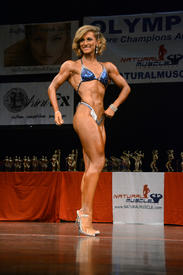How Does More Oxygen Help Burn More Fat

MHunte
Posts: 149 Member
How Does More Oxygen Help Burn More Fat? Oxygen + Water = Fat burn. (from "Want to Lose Weight?" article) Basically, the body needs water and increased oxygen to burn fat as an energy source. The water intake should be anywhere from a half gallon for women and up to one gallon a day for men, and the increased oxygen consumption will assist with the other part of the equation. As you add more water and oxygen to your system, your body will be able to use the retained water for excretion, prompting almost immediate weight loss of retained water and toxins. This is not the same as sitting in a sauna and sweating which actually dehydrates you. Adding water will rehydrate you and enable the body to burn more fat (as long as you increase your oxygen intake by doing some form of exercise). Walking, swimming, biking, jogging, calisthenics, and even yard work can help with working your cardiovascular system. Try the deep breathing rhythm during running and see for yourself how you will run at a lower heart rate and have more energy for a strong finish. Drinking water plus physical activity where you breathe at a higher heart rate (ie aerobic activity like walking, jogging, swimming, biking, resistance training etc.) will ultimately lead to weight loss. Not only will you release retained water - ending the bloated and puffy feeling, but your metabolism will burn fat at a higher rate than before you started adding sufficient water intake to your diet. If you are significantly overweight (50-100lbs), you need to add more water to your diet than the minimum recommended daily amount. Some experts agree that the intake should be another 6-8 oz. of water for every 10-20 lbs overweight. The bad news is that coffee, tea, diet drinks, alcohol, and nicotine are diuretics meaning they actually will dehydrate you. These drinks should not count as your 1-2 quarts a day of daily water consumption. If you think you maybe retaining water, try adding up to a gallon of water a day and you could lose about five to ten pounds of retained water in a few short days. I have seen people lose up to twenty in a week by ONLY adding water to their diet
.~info taken fom Army Physical Training Guide~( Stew Smith is a former Navy SEAL and fitness author certified as a Strength and Conditioning Specialist (CSCS) with the National Strength and Conditioning Association).
.~info taken fom Army Physical Training Guide~( Stew Smith is a former Navy SEAL and fitness author certified as a Strength and Conditioning Specialist (CSCS) with the National Strength and Conditioning Association).
0
Replies
-
Preparing for serious debate! Shields up!0
-
Preparing for serious debate! Shields up!
Here it comes........
If I drank that much water, I may have to start wearing tena lady!!!! I'd have to give up work, as I'd constantly be on the loo.
Have increased my water intake though.
Definitely good advice.0 -
Drinking those amounts of water is getting into very dangerous territory. Below are exerts from a couple of journal articles that should be considered when looking at water intake. The general population seem to accept that increased water consumption is fine, within reason it is, but that effect is not along a continuum, more like the inverted U with benefit on the Y axis and volume on the X. But it is also about timeframe, you really only want to be drinking around 600ml per hour and prob no more than 1L per hour. If you are nailing 2L plus per hour and you are exercising heavily, make sure you do some quality research and educate yourself on the risk.
Exercise-Associated Hyponatremia: Overzealous Fluid Consumption.Full Text Available
By: Rogers, Ian R.; Hew-Butler, Tamara. Wilderness & Environmental Medicine (Allen Press Publishing Services Inc.), Summer2009, Vol. 20 Issue 2, p139-143, 5p
"Exercise-associated hyponatremia is hyponatremia occurring during or up to 24 hours after prolonged
exertion. In its more severe form, it manifests as cerebral and pulmonary edema. There have
now been multiple reports of its occurring in a wilderness setting. It can now be considered the most
important medical problem of endurance exercise. The Second International Exercise-Associated Hyponatremia
Consensus Conference gives an up-to-date account of the nature and management of this
disease. This article reviews key information from this conference and its statement. There is clear
evidence that the primary cause of exercise-associated hyponatremia is fluid consumption in excess
of that required to replace insensible losses. This is usually further complicated by the presence of
inappropriate arginine vasopressin secretion, which decreases the ability to renally excrete the excess
fluid consumed. Women, those of low body weight, and those taking nonsteroidal anti-inflammatory
drugs are particularly at risk. When able to be biochemically diagnosed, severe exercise-associated
hyponatremia is treated with hypertonic saline. In a wilderness setting, the key preventative intervention
is moderate fluid consumption based on perceived need (‘‘ad libitum’’) and not on a rigid rule."
Exercise-associated hyponatremia: the influence of pre-exercise carbohydrate status combined with high volume fluid intake on sodium concentrations and fluid balance.Detail Only Available
Hubing, Kimberly; Bassett, John; Quigg, Laura; Phillips, Melody; Barbee, James; Mitchell, Joel, European Journal of Applied Physiology Mar2011, Vol. 111 Issue 5, p797 (English Abstract Available)
"Exercise-associated hyponatremia (EAH) is a rare, but
serious condition that has been identified in those engaging
in prolonged physical activity, especially when conducted
in a hot environment. Hyponatremia is diagnosed when
serum sodium concentrations fall below 135 mmol/L
(Siegel 2006). Excessive sweating, and the associated
sodium loss, can reduce the body’s absolute sodium content;
however, in the presence of dehydration, because
sweat is dilute, post-exercise hypernatremia is a more
common outcome. If, however, large volumes of a hypotonic
solution are ingested in the presence of a reduced
absolute sodium content, EAH due to the dilution of serum
sodium can occur (Almond et al. 2005; Noakes 1992).
Hyponatremia may also be caused simply by over-hydration
without excessive sodium losses (Noakes 1992; Noakes
et al. 1985). Emphasis on the dangers of dehydration
may result in athletes consuming more liquid than actually
needed, either during exercise or during post-competition
recovery (Noakes 1992; Noakes et al. 1988)."0 -
pretty much there's a higher net ATP gain with the sufficient amount of oxygen in Glycolysis ( or generally whatever metabolic path.)0
-
This is almost true... you burn more fat during low impact LONG exersices such as a 10k walk, becuae your body uses a higher percent of fat calories as a prime energy source. HOWEVER the total calorie output wont be enough to make a real impact on weight loss unless you are litterally doing 10k walks every day, also this deosn't help with hypertropy or muscle gain, which can make the fat loss porcess a lot harder. By doing a combination of low impact and high impact exercise, such as HIIT you will be able to get the best results using Oxygen to help burn fat.0
-
Delete. NVM.0
-
i worked with a dietician intern once...her argument was "If Everyone Ate the Recommended Amount of Fiber and Drank the Recommended Amount of Water, Obesity Would Be Significantly Reduced."
I was a good 120lbs overweight at the time, so I gave it a go, and lost it in about 3 years. I made small changes over the years that helped, adding some excercise, eating more consciously, etc.
She said insufficient water consumption (which varies based upon each person's needs) makes the kidneys work harder, the liver, in turn, scales back on metabolizing fat in order to help the kidneys function. Obviously, I'm not a doctor, dietician or anything like that (though I did stay at a Holiday Inn Express once or twice), but it made sense. Staying hydrated in general is touted in every beauty and fitness magazine there is.0 -
:huh:0
-
:noway:0
-
How Does More Oxygen Help Burn More Fat? Oxygen + Water = Fat burn. (from "Want to Lose Weight?" article) Basically, the body needs water and increased oxygen to burn fat as an energy source. The water intake should be anywhere from a half gallon for women and up to one gallon a day for men, and the increased oxygen consumption will assist with the other part of the equation. As you add more water and oxygen to your system, your body will be able to use the retained water for excretion, prompting almost immediate weight loss of retained water and toxins. This is not the same as sitting in a sauna and sweating which actually dehydrates you. Adding water will rehydrate you and enable the body to burn more fat (as long as you increase your oxygen intake by doing some form of exercise). Walking, swimming, biking, jogging, calisthenics, and even yard work can help with working your cardiovascular system. Try the deep breathing rhythm during running and see for yourself how you will run at a lower heart rate and have more energy for a strong finish. Drinking water plus physical activity where you breathe at a higher heart rate (ie aerobic activity like walking, jogging, swimming, biking, resistance training etc.) will ultimately lead to weight loss. Not only will you release retained water - ending the bloated and puffy feeling, but your metabolism will burn fat at a higher rate than before you started adding sufficient water intake to your diet. If you are significantly overweight (50-100lbs), you need to add more water to your diet than the minimum recommended daily amount. Some experts agree that the intake should be another 6-8 oz. of water for every 10-20 lbs overweight. The bad news is that coffee, tea, diet drinks, alcohol, and nicotine are diuretics meaning they actually will dehydrate you. These drinks should not count as your 1-2 quarts a day of daily water consumption. If you think you maybe retaining water, try adding up to a gallon of water a day and you could lose about five to ten pounds of retained water in a few short days. I have seen people lose up to twenty in a week by ONLY adding water to their diet
.~info taken fom Army Physical Training Guide~( Stew Smith is a former Navy SEAL and fitness author certified as a Strength and Conditioning Specialist (CSCS) with the National Strength and Conditioning Association).
Coffee, Tea, and Diet drinks will NOT "actually dehydrate" you ... Stew's talking out of his *kitten*.0 -
If i drank that much water, I probably would become a floating toy in a bathtub :laugh:
In for the debates0 -
I really wonder what the great motivation was to bring a post like this back from the dead.0
This discussion has been closed.
Categories
- All Categories
- 1.4M Health, Wellness and Goals
- 398.1K Introduce Yourself
- 44.7K Getting Started
- 261K Health and Weight Loss
- 176.4K Food and Nutrition
- 47.7K Recipes
- 233K Fitness and Exercise
- 462 Sleep, Mindfulness and Overall Wellness
- 6.5K Goal: Maintaining Weight
- 8.7K Goal: Gaining Weight and Body Building
- 153.5K Motivation and Support
- 8.4K Challenges
- 1.4K Debate Club
- 96.5K Chit-Chat
- 2.6K Fun and Games
- 4.8K MyFitnessPal Information
- 12 News and Announcements
- 21 MyFitnessPal Academy
- 1.5K Feature Suggestions and Ideas
- 3.2K MyFitnessPal Tech Support Questions








